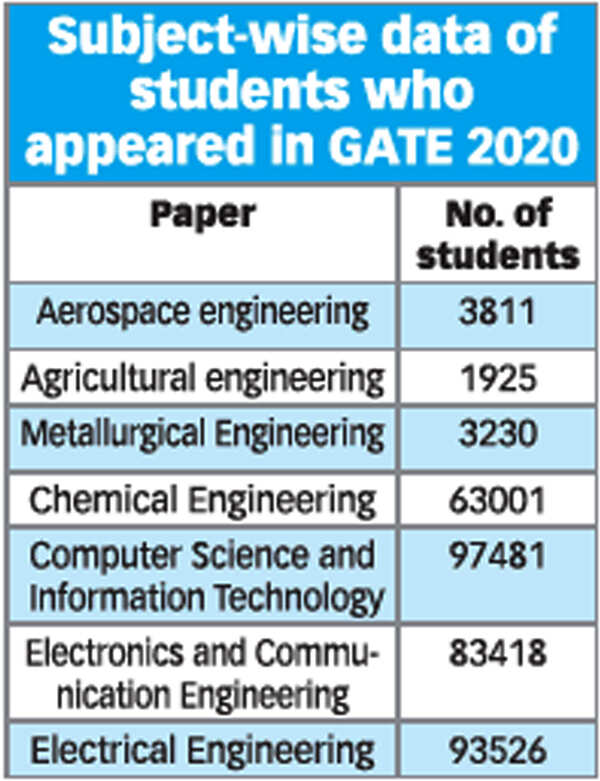- News
- Education News
- News
- GATE 2020: Why traditional branches of engineering continue to attract aspirants
Trending
This story is from March 23, 2020
GATE 2020: Why traditional branches of engineering continue to attract aspirants
The cut-off marks for most of the specialised papers dipped from last year while for traditional subjects, cut-offs registered an increase

Representational Image
The cut-off marks for most of the specialised papers dipped from last year while for traditional subjects, cut-offs registered an increase
While the overall registrations for saw a sharp decline, the traditional branches of engineering continue to attract students. Qualifying marks for most subjects including aerospace engineering, biotechnology, metallurgical engineering, have gone down as compared to last year but traditional branches such as civil engineering, chemical engineering, electronics and communication engineering and physics are among the few subjects for which the qualifying marks have seen a rise this year.
The qualifying marks for aerospace engineering in 2018 were 33.5, which dipped to 27.2 this year.Similarly, the marks dipped two points for agricultural engineering. “The qualifying marks are calculated basis the mean and standard deviation for a particular subject. The cut-offs are an indicator of the relative performance of the candidates every year. High qualifying marks only state that either the paper was easy or the students were well-prepared in particular papers,” says BR Chahar, organising chairman, 2020.

Geology and Geophysics
For the first time, the qualifying marks for geology and geophysics were declared separately. Until last year, the two subjects were treated as a single unit, which often created hurdles for aspirants. “After analysing the data for the last few years, we noticed that all the top scorers in the category were either from geology or geophysics, but it was never a mix of bright students from both. This created hurdles during MSc admissions because both the subjects are treated differently at the master’s level. Hence, we decided to declare separate qualifying marks from this year onwards,” adds Chahar.
While the overall registrations for saw a sharp decline, the traditional branches of engineering continue to attract students. Qualifying marks for most subjects including aerospace engineering, biotechnology, metallurgical engineering, have gone down as compared to last year but traditional branches such as civil engineering, chemical engineering, electronics and communication engineering and physics are among the few subjects for which the qualifying marks have seen a rise this year.
The qualifying marks for aerospace engineering in 2018 were 33.5, which dipped to 27.2 this year.Similarly, the marks dipped two points for agricultural engineering. “The qualifying marks are calculated basis the mean and standard deviation for a particular subject. The cut-offs are an indicator of the relative performance of the candidates every year. High qualifying marks only state that either the paper was easy or the students were well-prepared in particular papers,” says BR Chahar, organising chairman, 2020.

Rajiv Prakash, professor and dean (R&D), IIT (BHU) Varanasi, says, “The number of candidates appearing for the non-traditional branches is less, because of which the relative performance is not at par with the popular subjects and results in low qualifying marks.” More students opt for popular subjects to get a decent score, which helps them secure a seat in a reputed institute or a job in a PSU. Though the students are aware of the other branches, there is a dire need to highlight the job prospects in the niche areas, adds Prakash.
Geology and Geophysics
For the first time, the qualifying marks for geology and geophysics were declared separately. Until last year, the two subjects were treated as a single unit, which often created hurdles for aspirants. “After analysing the data for the last few years, we noticed that all the top scorers in the category were either from geology or geophysics, but it was never a mix of bright students from both. This created hurdles during MSc admissions because both the subjects are treated differently at the master’s level. Hence, we decided to declare separate qualifying marks from this year onwards,” adds Chahar.
End of Article
FOLLOW US ON SOCIAL MEDIA










